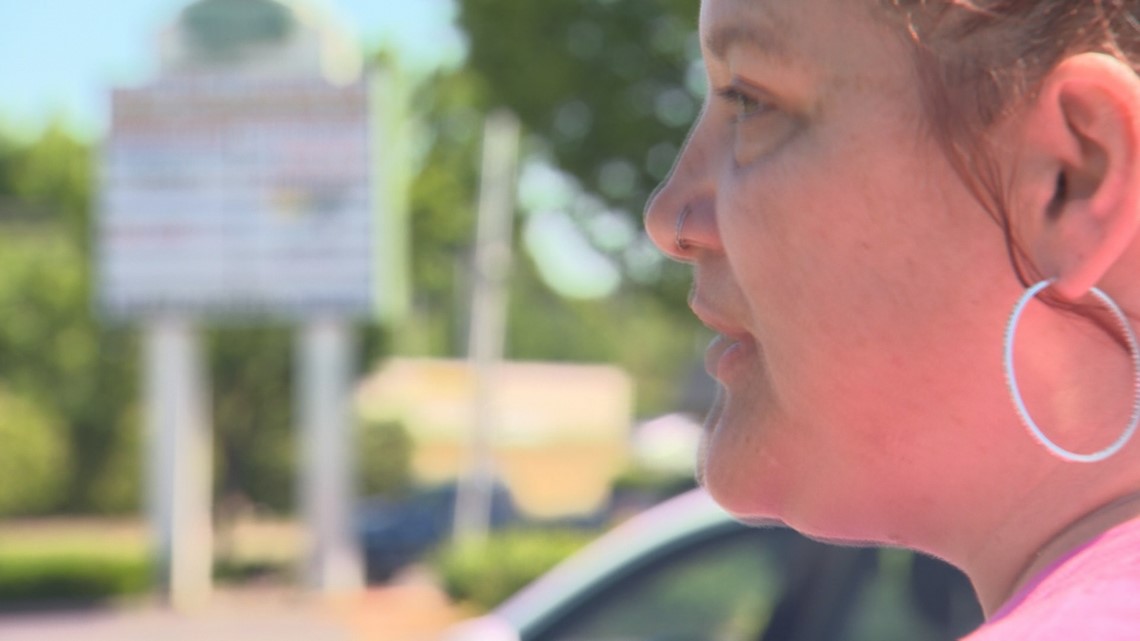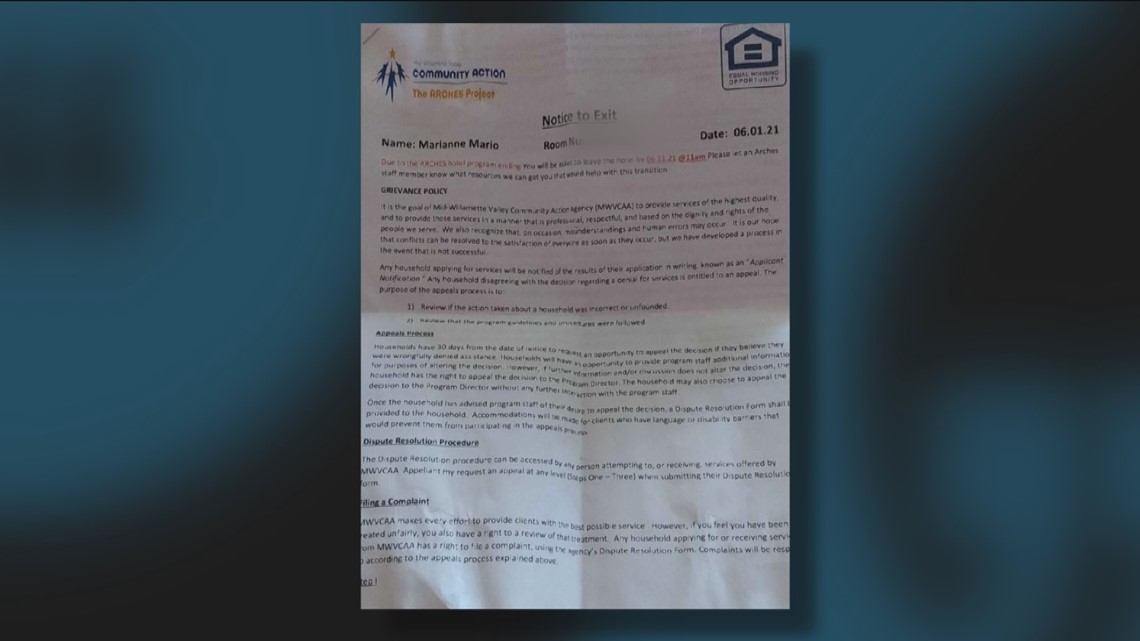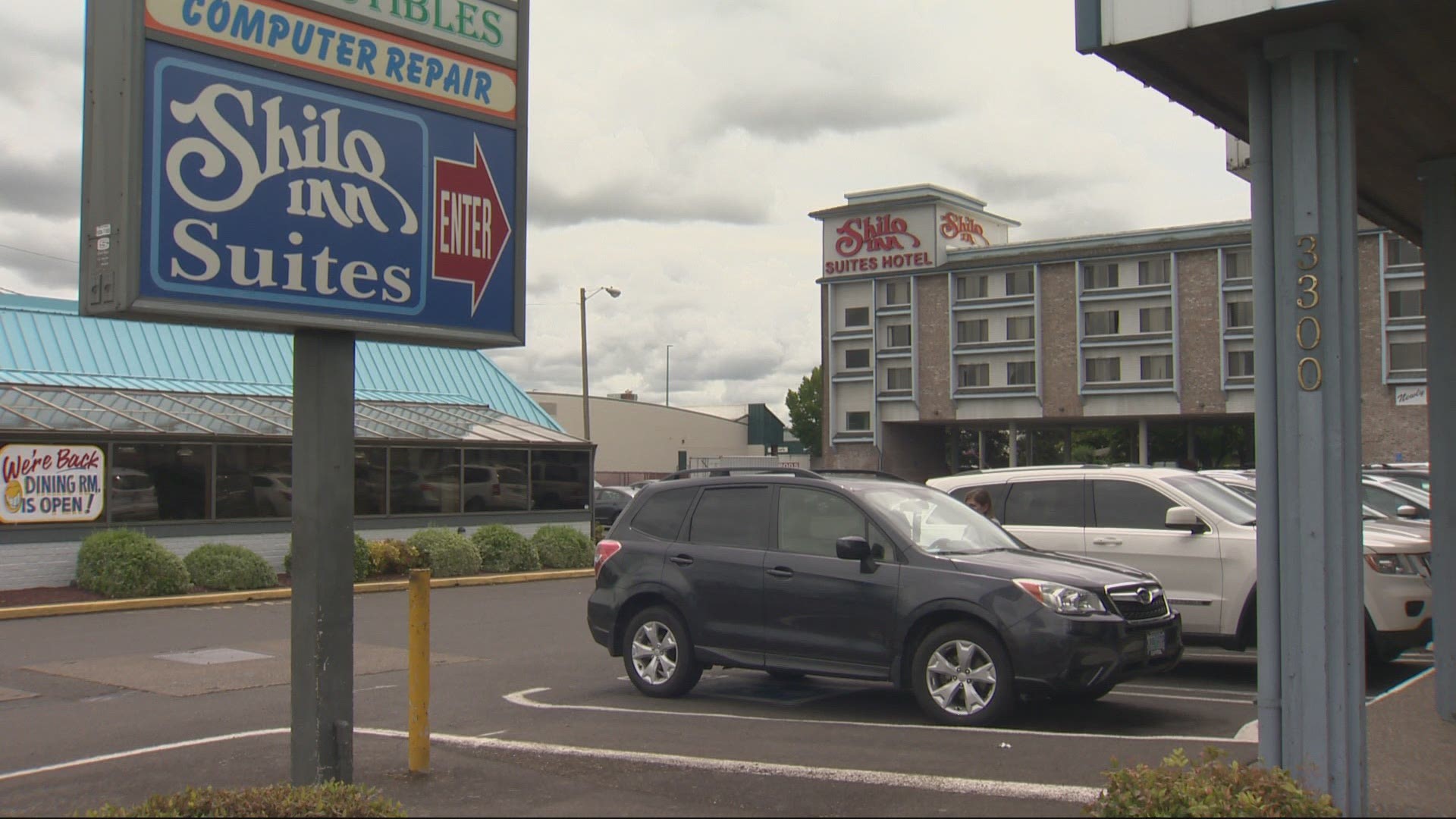Over the next several weeks, more than 300 homeless, medically fragile people will have to vacate their Salem hotel rooms and find somewhere else to sleep. As vaccination rates rise and infection rates fall, the program that placed them in those rooms to keep them isolated during the pandemic is coming to an end.
Marianne Mario received her letter from the ARCHES Project, a housing program run by the Mid-Willamette Valley Community Action Agency, last week. The nonprofit has been footing the bill for Mario’s room, as well all the rooms in the hotel program, using federal COVID relief money.
After losing her job as an in-home caregiver, Mario was placed into a room at Salem’s Shilo Inn in February. Like so many others, her time is up. Mario has to be out of her room by 11 a.m. Friday. She has no idea where she’ll go.


“If I'm on the street, I can lose my life,” said the 44-year-old Salem native in an interview last week. “It's basically giving me a death sentence, either for my diabetes or the abuser that I had in 2011 that's going to be released from prison in August.”
Court documents and a rep from Oregon’s Department of Corrections confirm a man convicted for violently assaulting Mario a decade ago is due to be released from prison in August. She’s convinced, if he finds her, he’ll kill her.
When it comes to her diabetes, Mario said complications from her Type 2 diagnosis are causing neuropathy. Doctors, she said, are talking about amputating her feet.
Despite those issues, she said, she can’t find housing anywhere in Marion County. Women’s shelters meant for survivors of domestic violence, she said, have even told her there’s just not enough help to go around.
“Everybody's giving me the run-around. They don't have programs for me right now,” Mario said.


Staff at ARCHES confirmed Mario is required to leave her room by midday Friday. They’re instructing everyone in the program to do the same, adding the process will happen gradually, floor by floor. Getting everyone out will take weeks.
“The individual cases are heartbreaking. They're hard, and they're real and valid,” said Ashley Hamilton, program director of the ARCHES Project. “But there are hundreds of individuals facing the same circumstances in our community.”
Simply put, Hamilton said, there aren’t enough shelter beds in the Marion County area to house everyone in need. Not by a long shot. The latest estimates show there are approximately 314 permanent shelter beds in the area. When inclement weather hits, officials can open an additional 226 seasonal ones.
Most nights, most of those beds are full. And the last Point In Time count, conducted in 2019, tallied roughly 866 people living on the streets of Marion and Polk Counties combined. Officials and volunteers conducted another count this past January. The results from that, which will include people rendered homeless by wildfires and job losses tied to the pandemic, is due out this summer.
The hotel program alone housed 324 people, all of whom, like Mario, are scrambling to find housing now.
“This is a crisis we are experiencing, a humanitarian crisis that is the likes of something we have never seen before,” said Hamilton. “And the scary part is some on some level we know it's to get worse.”
Still, the federal funding that was paying for people to stay in these hotel rooms is running out, and ARCHES can’t afford to keep it going forever. Plus, the threat of COVID has largely dissipated.
“It is a temporary solution,” Hamilton said.
Salem city officials offered a similar rationale last week when they announced they’d be clearing hundreds of campers from the city’s parks. For more than a year, an estimated 571 people have been camping at Wallace Marine Park and Cascades Gateway Park.
RELATED: Citing decline in cases, Salem reverses COVID policy of letting homeless camp in city parks
On Thursday, when asked if the city has enough resources to house those being evicted, the city’s housing liaison Gretchen Bennett said “No! It's such an urgent issue. There's not enough shelter beds in Salem. That's one of the urgent concerns that I know the city and our regional partners are all looking at.”
There is some progress to report. A few shelters are on the brink of opening in and around Salem. Chief among them is a Super 8 motel, bought by the Mid-Willamette Valley Community Action Agency. It’ll open as a shelter by fall, Hamilton said, and house between 100 and 120 people.
Still, between the hundreds preparing to leave its hotels and the even larger crowd poised to be forced from its parks, a wave of people are likely headed back out onto Salem's streets.
Mario, who said she recently got a part-time job in retail, is afraid the battle to find housing and help is only going to get more difficult. While she’s searched, a large homeless camp down the street from her hotel, under I-5, has continued to grow.
It’s like an omen, she said, telling her she’s bound to end up there.
“I don't want to die, but that's the sad reality. And I have to accept that, you know? “ she said. “That's why I called you guys, because maybe if I get my voice out there, people are going to realize this is real.”

